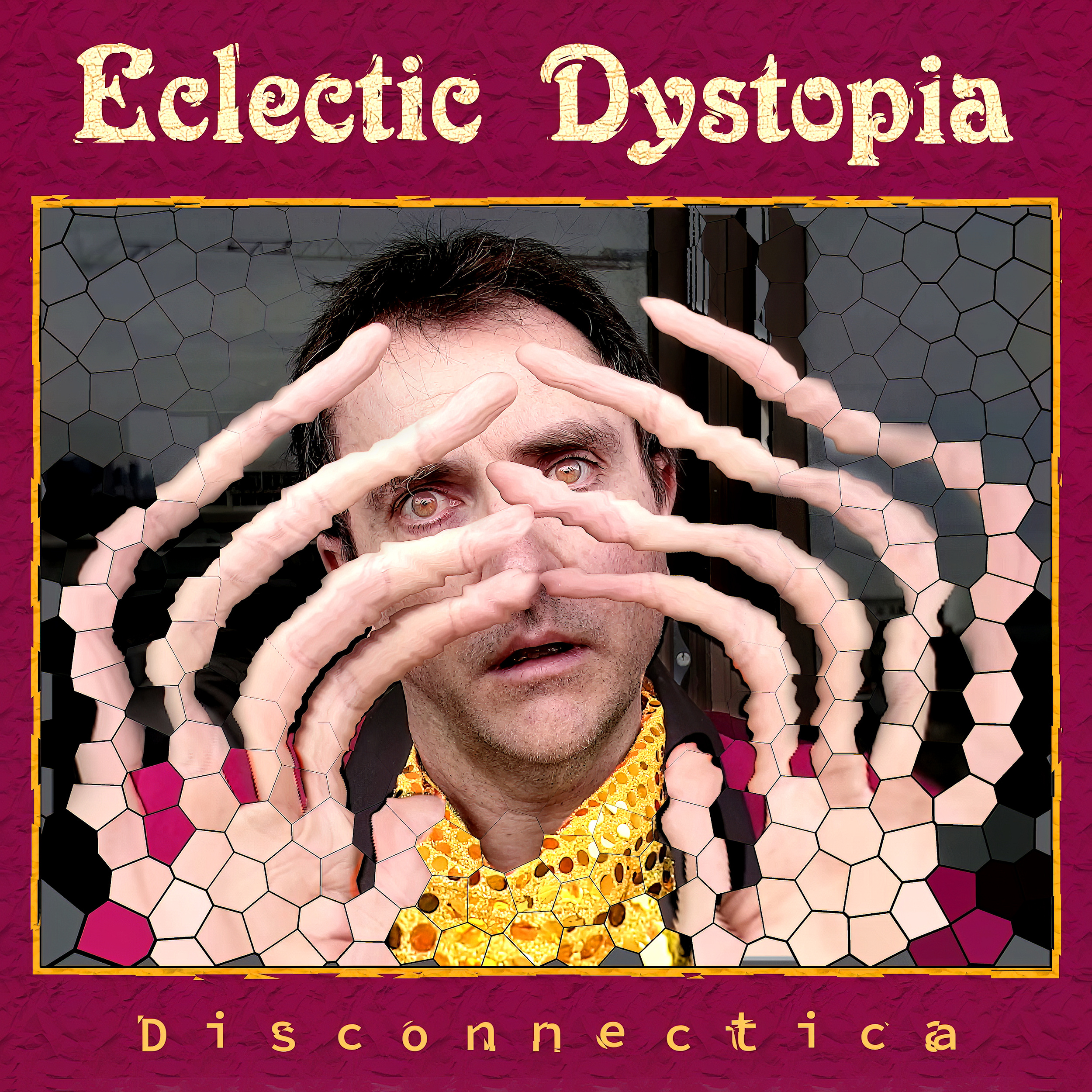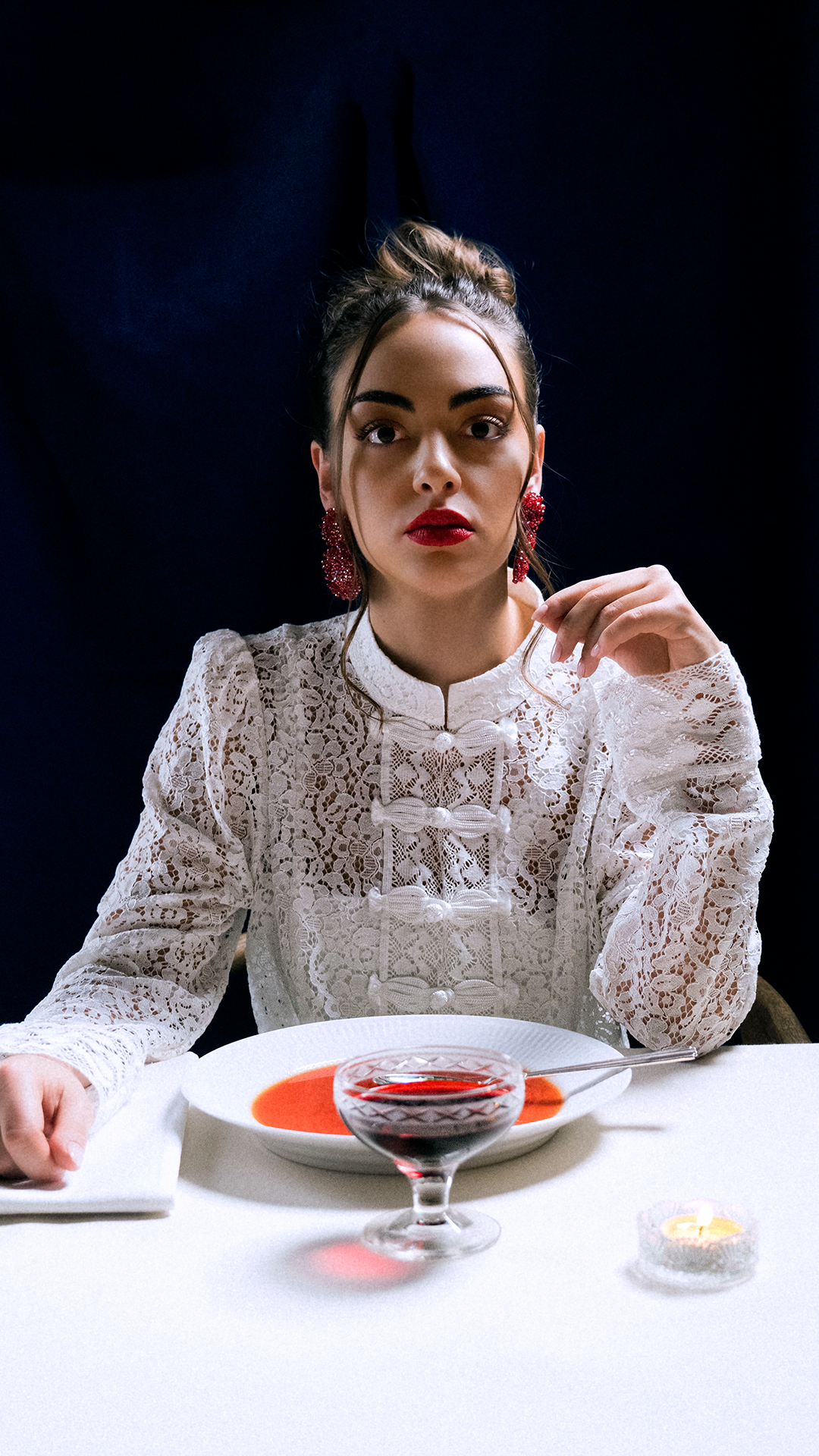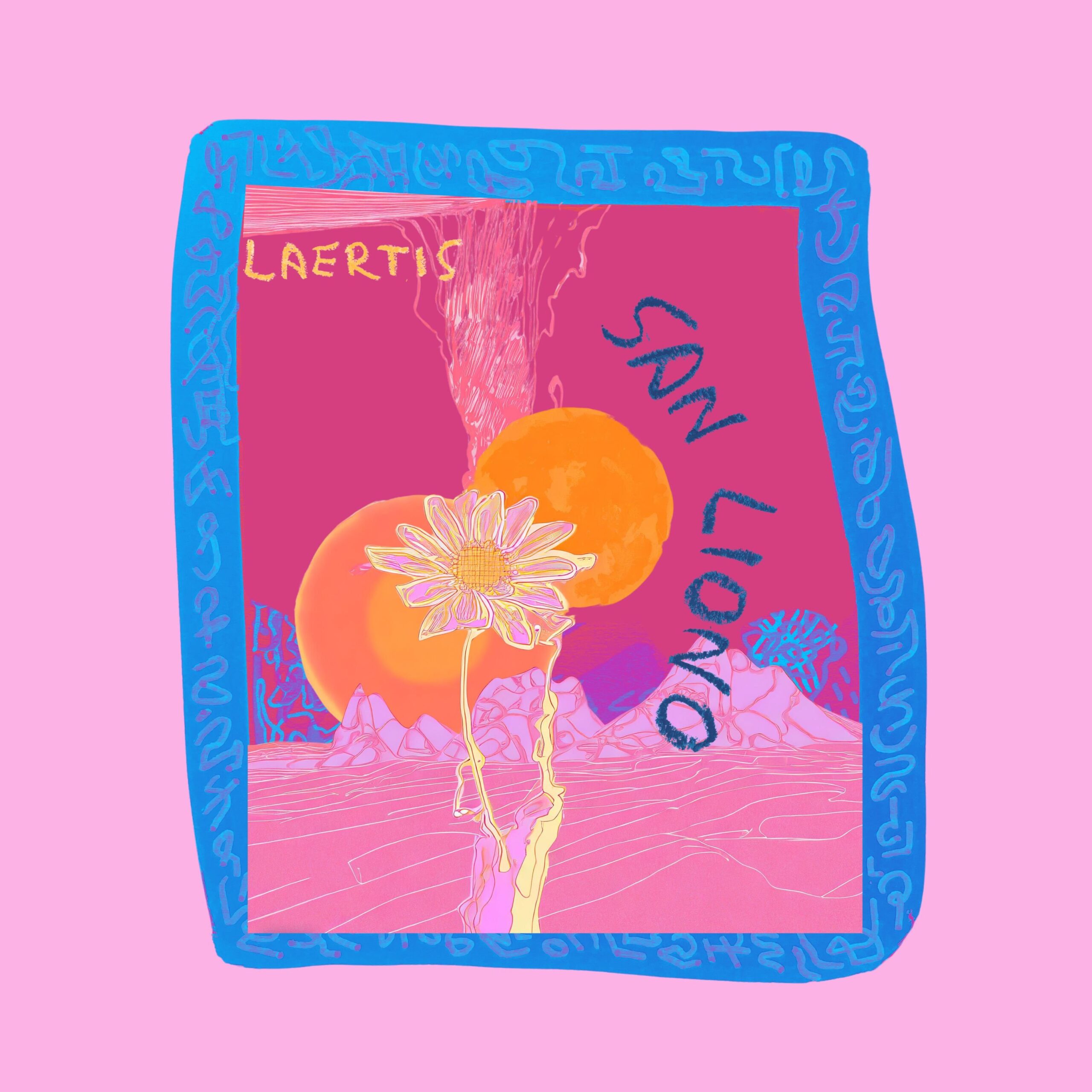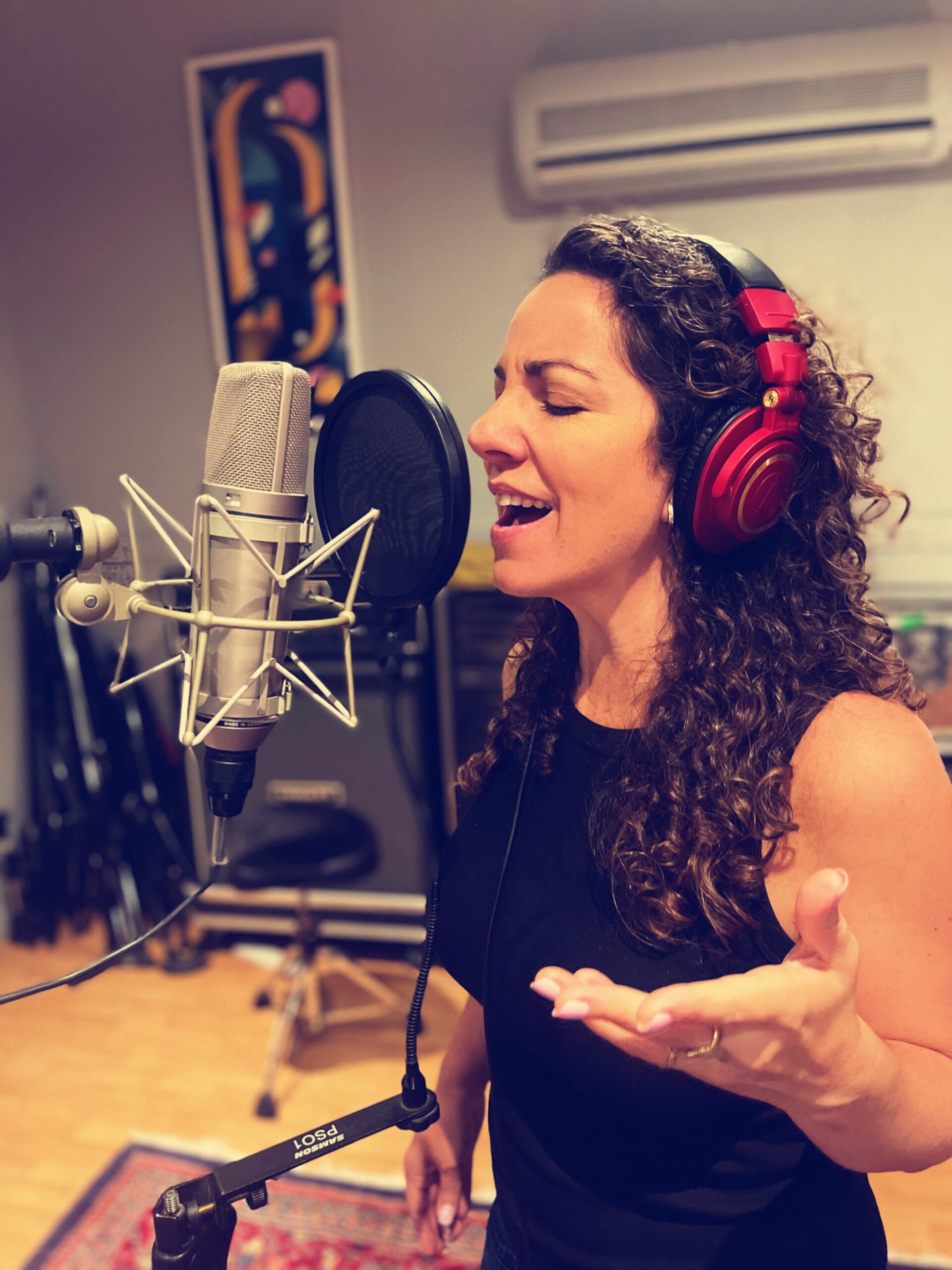
Q: Hi! “Dedication (for Gabi)” is a deeply personal piece for you, inspired by your cousin Gabi’s life and battle with cancer. Could you share with us how the process of composing this piece helped you cope with her loss?
A: Writing music is a process that centers me. Before this piece began, I was composing a feature film score. I had come across a sampled piano sound that felt inviting, expansive and warm but also otherworldly. I improvised a chord progression in one take, and saved it, knowing it wasn’t appropriate for the film but with the intent of coming back to it later. This all started before Gabi passed away.
Later in 2021, after writing a bunch of expansive cinematic jazztronica tracks, I had set up a recording session with the Budapest Art Orchestra. At this time, I revisited the piano improvisation and turned it into a string arrangement, as well as adding some percussion and electronica fx. This session came after Gabi’s passing, and I wanted to do something in her honour. Gabi was an incredibly courageous and graceful person. She was always a big supporter of my music. I did not want the piece to only reflect the emotions that I felt at that time, but also speak to the stature of her personality and continuing presence inside all of us who knew her.
Q: The song incorporates a unique blend of neo-classical elements, electronica, and ethereal vocals. How did you decide on this particular mix, and what do you think it adds to the emotional depth of the piece?
A: It wasn’t necessarily a conscious choice. It was a series of micro-decisions made over a few writing sessions where I just followed my intuition and tested things out, based on music that I love and what inspires me. I wanted to take the paradigm of chamber music and bring it into a 21st century context by adding futuristic sounding elements. The addition of Arta Jēkabsone on vocals certainly took it to new emotional depths. She came to my studio and improvised her part in one take. I think that the human voice is a common connector for all of us as listeners. Her part helps bring an angelic feel to the piece, one that is wholly appropriate in reflecting Gabi’s caring and nurturing spirit.
Q: Your move from Melbourne to New York seems to have had a significant impact on your music. How do you believe the diverse musical scene in New York influenced the creation of “Dedication (for Gabi)”?
A: I think the scenes in both Melbourne and New York sit on the cutting edge of genre-bending music. You see it all the time with the cross-section of jazz, neo-soul, hip-hop, world music and classical music. Live concert collaborations bring together hip-hop and electronica artists with symphony orchestras. There are many examples of artists who are deeply studied and informed of traditions, and then go to follow their own visions. It took some time adjusting to my new home before I felt ready to take all these ideas I had and pursue my own vision. There is a sense that anything is possible; it just depends on the artist bringing that idea to life. I grew up listening to classical music, and spent many years in my teens soaking up electronica and trip-hop artists. My brain naturally synthesizes these elements together, and the results are pieces including Dedication (for Gabi).
Q: The track features the Budapest Art Orchestra and vocals by Arta Jēkabsone. What was the collaboration process like, and how did their contributions shape the final version of the song?
A: I’ll never forget the recording session with the Budapest Art Orchestra. I was sitting in my studio in New York on a Friday afternoon, so it must have been pretty late on a Friday evening in Budapest. We had just done 3 hours and 50 minutes of intense recording. All the previous tracks were the ones you hear on Cinematic Chromatics Vol. I like Ride The Dragon, Dorongo, Paradiso (and others to come out on Cinematic Chromatics Vol. III). We were getting to the end of the session, we had one piece left. There were 10 minutes remaining, so barely any recording time, basically just enough to get two takes. I explained to the orchestra the background of the piece, but nothing specific about the music itself. They took one read of it, with the conductor, Peter Pejtsik, giving a few instructions. In one take, they nailed the whole piece. We did another for safety, but I didn’t need it. The first one had it all, and that’s what you’re listening to on the track.
Arta is a rising star on the jazz scene in New York. I actually first heard her as a violinist in a band at a friend’s gig many years ago. We have some mutual connections through the scene in New York, and I had heard the release of her album Light, which is incredible. I had actually first asked her to come to my studio to sing on another track (Called: “Into The Void”, which will be released later in 2024). Having her on this track was a kind of last minute experiment. I had an idea in mind of what the vocal aesthetic ought to be, and she was the perfect fit. There was no written vocal part, so I asked her to improvise on this track. What you hear is her first take, and she perfectly captured a wide emotional palette that this tune speaks to.
Q: You’ve mentioned that “Dedication (for Gabi)” sits at the intersection of several genres and styles. How do you navigate these different influences when composing, and what challenges do you face in blending them together?
A: I find the blending process happens fairly organically. I write without limitations or boundaries. Sometimes I set parameters, but whatever I hear, I go for it. I follow my intuition, which at times begins with something I hear and then leads me on very unexpected pathways. I don’t want listeners to notice that I’m blending influences. I want them to have a seamless listening experience, where they can bring their story to the music. If it excites a listener to notice that elements of different genres are coming together in a cohesive sonic narrative, then great. I want them to experience a soundtrack that can help bond with whatever experiences they’re going through in their life. Many times in my life, a certain piece of music has been the invisible arm around my shoulder when I needed it. I hope this piece can be the same for others. In addition to this, I think it’s important to share the story and process that goes into the writing, so listeners can understand more deeply how I arrived at this place. While it may start off spontaneously, the final output is not random. It doesn’t just start when I improvised the progression. It’s the culmination of years of listening, studying, absorbing, and synthesizing all these elements in my ears, heart and head, coupled with extensive ‘risk-taking’ (musically speaking) and experimentation, pushing the boundaries as far as I felt the music needed.
Q: This piece is part of the Cinematic Chromatics trilogy series. Can you give us a glimpse into the overarching themes of this series and how “Dedication (for Gabi)” fits within it?
A: We all carry our own stories, and music can be a great accompanist in shaping and remembering our experiences. Those experiences then become formative in how we process events and move forward.
I write this music to be a soundtrack for listeners. I think that instrumental music in particular leaves space for people to bring their own meaning. I originally wrote twelve pieces of music, intended to be released as an album. I soon came to the conclusion that as a new artist, this could be a lot of information to put out for listeners to digest. The diversity of pieces naturally leant itself to grouping the songs in some alternate form, so an EP of 4 to 6 tracks seemed appropriate. In all honesty, Dedication (for Gabi) is perhaps the ‘outlier’ given that it is the only piece to really exclusively exist in a mostly neo-classical genre. This said, the threads of this piece are connected by the fact that there are strings on many pieces, and many of the tracks feature electronica elements. For me, the pieces fit together as each tells their own story, and Dedication (for Gabi) is just another chapter in the narrative that speaks to a new emotional context.
Q: The piece is described as bending genres and redefining rules. In your view, what does it mean to challenge musical conventions, and why is it important to you as an artist?
A: What’s important to me is not sitting still, resting on your laurels, or repeating something that’s already been done. It’s not a conscious decision to ‘redefine rules’ per se. I just hear music this way. My brain synthesizes the ingredients into new ideas. Sometimes I hear them in my mind’s ear; sometimes the ideas are spontaneously inspired at the piano, or through a new sound I create on my NORD or other synths. In terms of what it means to challenge musical conventions, I think in order to do this, you have to dare to be yourself. You have to have the courage to pursue your vision. Looking back at any musical pioneer, it may not have always been clear that what they were doing at the time was real ‘pioneering’. They were invariably met with pushback, rejection, poor reviews, disdain by those who were unfamiliar with what they were seeking to do. It is always easier to do what’s acceptable. Hindsight can give the misperception that an artist’s body of work was inevitable, when really, those artists worked non-stop, pouring over every decision, all facing the unknown of how their work would be received. We take it for granted how anyone from Beethoven to Brahms, Miles Davis to Radiohead had/have a single focus to create something that sounds wholly like themselves and no one else.
Q: Gabi’s story is one of incredible strength and courage. How do you hope listeners will interpret or connect with the emotional journey conveyed through “Dedication (for Gabi)”?
A: I hope listeners find their own story and meaning in this piece. I write this music for listeners. Once it’s out in the world, it belongs to them, to bring their own experiences. I hope this piece provides an outlet for expression where words otherwise fail.
Q: The track aims to reflect life’s multifaceted nature, with layers of beauty and complexity. Can you elaborate on how you approached composing the music to capture these varying emotions and states?
A: There wasn’t a predetermined plan to necessarily achieve these emotional states. It all unfolded organically, starting with the piano sound. Life circumstances certainly played a subconscious role. The sound naturally lends itself to this kind of introspective, ethereal and emotive response. I didn’t really observe what I was doing while doing it. I was just in a flow state. I followed whatever I heard next. The outpouring of emotion in the piece happened organically. Once the bones of the piece were in place, I decided to augment that with the string arrangement. As mentioned above, the addition of vocals was very much an experiment, not something that was predetermined. Arta did such an incredible job that the vocals felt like they always belonged as part of the piece.
Q: Finally, looking forward, how do you see your music evolving? Are there any particular themes, sounds, or collaborations you’re eager to explore after completing the Cinematic Chromatics series?
A: The Cinematic Chromatics series is the start. There are still so many ideas sitting on a hard drive, on my iPhone, sketches scribbled out on paper that I want to realize. I definitely hear new sounds coming in the next iteration, and envision there being sounds that are still to be discovered. That’s a big part of my orchestrating process; not only writing for what combinations or textures I know, but spending time experimenting with new ideas. I want to expand my sonic textures, push structural boundaries. I definitely will be looking into collaborative partners for the next batch of releases, I have some artists in mind whom I think could bring something unique to these kinds of tracks and take them to new, exciting places for listeners. In addition to this will be bringing this music to the stage with live performances. This is in the works for later this year.






